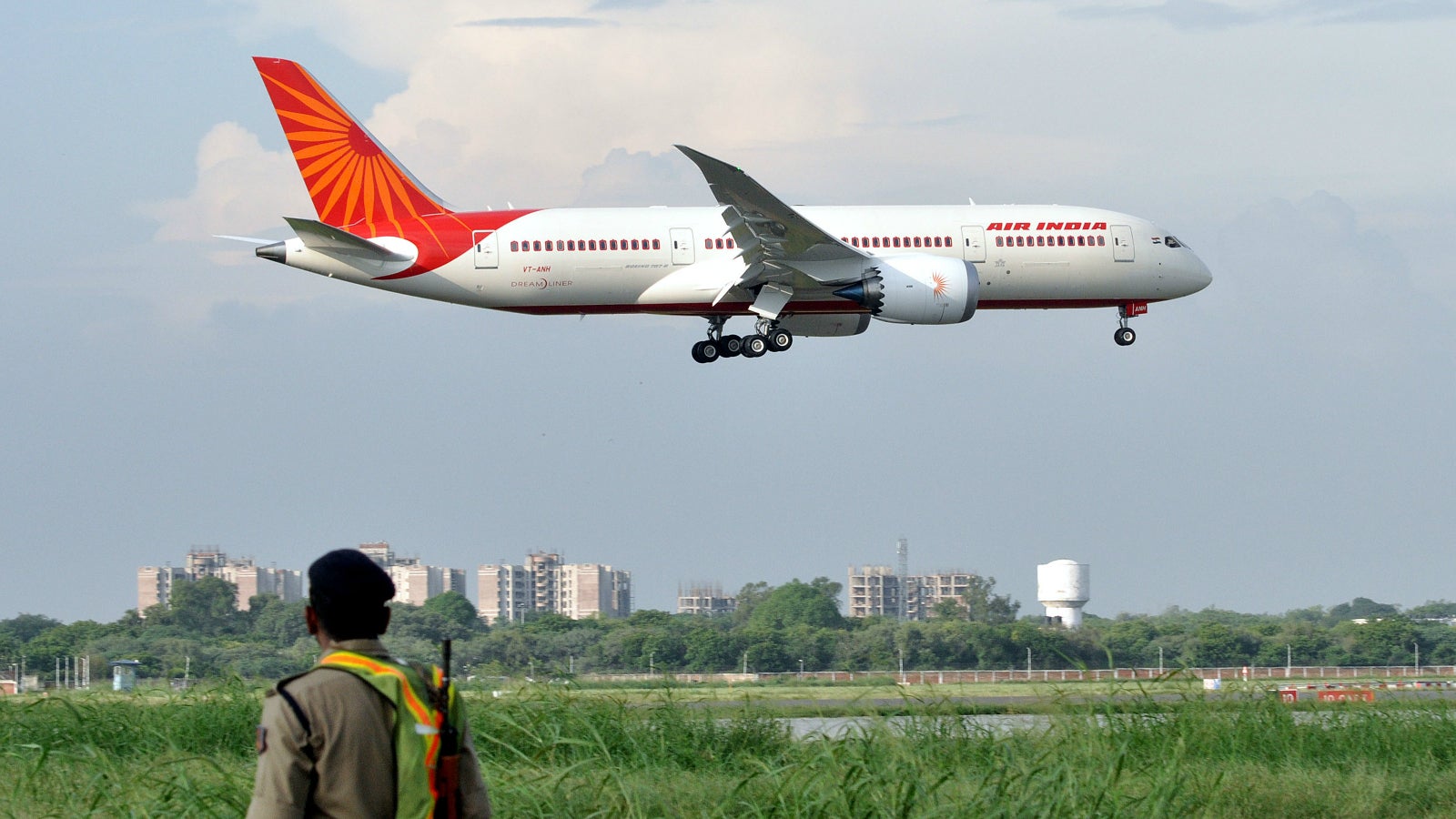In a country of VIP worshippers, Air India shows some spine
“Every Indian is special,” said prime minister Narendra Modi on April 19, as his government banned the use of red beacons on official cars. ”Every Indian is a VIP,” Modi insisted, perhaps signalling an appetite to crack down on India’s pervasive VIP (very important person) culture.


“Every Indian is special,” said prime minister Narendra Modi on April 19, as his government banned the use of red beacons on official cars. ”Every Indian is a VIP,” Modi insisted, perhaps signalling an appetite to crack down on India’s pervasive VIP (very important person) culture.
For long, most Indians have been familiar with the unwritten rule that in the world’s largest democracy some are more equal than others, especially if they are law-makers. So, most instances of misbehaviour by the powerful are simply brushed under the carpet.
However, in recent weeks, and even before Modi’s assertion, there’s been staunch defiance of such high-handedness from an unexpected quarter: Air India.
India’s flag carrier has reportedly written to the Delhi police, asking why no action has been taken against Shiv Sena member of parliament (MP) Ravindra Gaikwad, who physically assaulted an airline staffer on March 23. “The airline is understood to have said that the morale of the employees is being impacted as no action has been initiated against the MP despite nearly a month after the incident,” the Press Trust of India reported.
The airline has reasons to be aggrieved. Gaikwad first beat up an Air India staffer for no reason, then shamelessly bragged about it, and finally just refused to apologise. For all the prime minister’s recent insistence on the common man’s importance, there was barely a reprimand from the government—even after other Shiv Sena MPs behaved indecorously towards aviation minister Ashok Gajapathi Raju in parliament.
Instead, it was Air India, the perennially beleaguered national carrier, that showed much-needed spine, and provided a playbook of sorts to deal with bratty politicians. Without delay, the assaulted staffer went straight to the cops and filed a first information report (FIR) against Gaikwad.
Alongside, Air India launched its principal act of protest (not likely without the government’s tacit support), which was to simply not let Gaikwad fly on its aircraft. The Federation of Indian Airlines, which represents all major private carriers, also enforced an embargo, effectively grounding the MP. Gaikwad tried and tried to book a ticket, especially on Air India, but nothing came of it.
Amid much public outrage, the matter was taken up in parliament. Aviation minister Raju maintained that safety was paramount and no unruly passengers would be tolerated, not something that went down too well with Gaikwad and his colleagues. The brazen Gaikwad still refused to apologise to the airline and the assaulted staffer, only expressing his “regret” over the incident in a letter to Raju. Eventually, the government blinked, and asked Air India and other carriers to lift the ban on Gaikwad.
You’d think it would end there, but evidently not this time, not with Air India in charge. Now, will the Modi government, which controls the Delhi police, walk the talk?